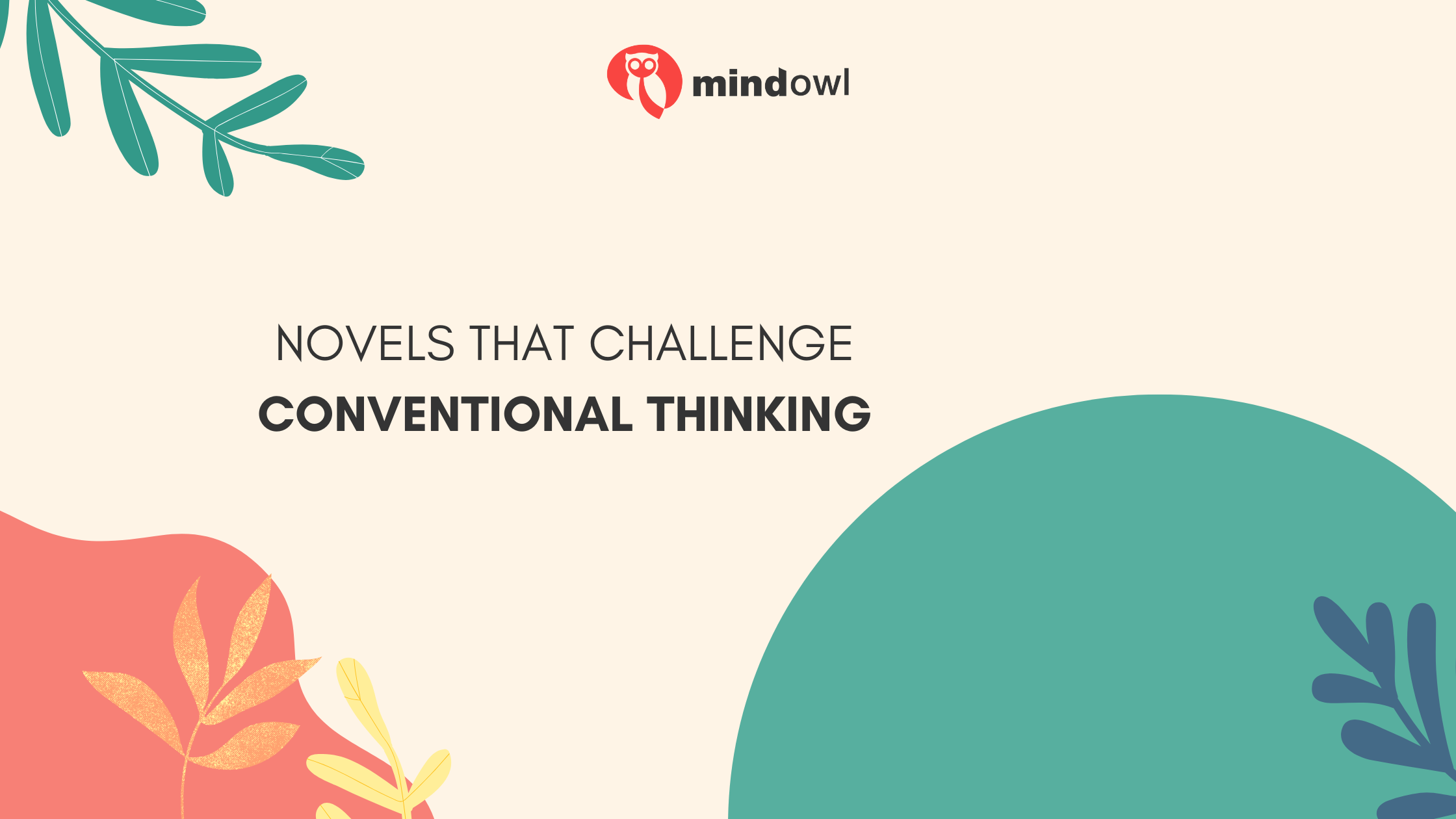Shaking Off Old Patterns
Stories have always been more than a way to pass the time. Some novels grab familiar tropes and toss them aside forcing readers to step into a space where ideas do not behave as expected. Works like “Catch 22” by Joseph Heller or “Invisible Man” by Ralph Ellison turn logic upside down and open doors to questions that linger long after the last page. These books remind readers that literature can unsettle as much as it can comfort.
In many ways lifelong learning becomes easier thanks to Z library. With open access to countless thought provoking works a person does not have to wait for a classroom or a professor to start breaking down assumptions. These novels act as companions on a path where knowledge keeps evolving and where new viewpoints are always around the corner.

The Art of Asking Hard Questions
A book that challenges norms does not provide a neat answer. It plants doubt. Think of “Brave New World” by Aldous Huxley which flips ideas of progress into a chilling portrait of control. Or “The Handmaid’s Tale” by Margaret Atwood which drags readers into a world where rights vanish overnight. These stories are not comfortable yet their discomfort is the point. They refuse easy acceptance and they demand reflection.
Such novels thrive because they make the ground shift under familiar ideas. When culture insists that freedom and choice are permanent these works show how fragile both can be. They speak in echoes that reach far beyond their original release dates. Reading them is like standing on sand as the tide moves in. The solid ground of certainty begins to slide away forcing new balance.
From here it is natural to highlight a few recurring themes that shape these works:
- Power and Control
Many unconventional novels dig into who holds power and who does not. Orwell’s “1984” turns surveillance into an unbearable presence while Huxley’s vision shows control through pleasure instead of pain. The detail lies not just in the world building but in the moral tension that lingers. Readers confront the fact that control rarely comes in only one form. Often it wears a smile while it strips away freedom.
- Identity and Belonging
Stories like “Beloved” by Toni Morrison or “The Stranger” by Albert Camus pull apart what it means to belong. In Morrison’s world the weight of memory crashes into the present shaping identity in ways that cannot be escaped. Camus presents a man adrift in indifference whose detachment itself becomes a rebellion. Both force the realization that identity is not given it is questioned and rebuilt.
- Morality and Doubt
When Dostoevsky’s “Crime and Punishment” stares into the mind of Raskolnikov it makes readers wrestle with the clash between morality and desperation. The crime itself becomes less important than the storm of thought that follows. Doubt grows into the heart of the story making it clear that morality is not a simple scale of right and wrong but a battlefield of shifting choices.
These themes do not fade once the cover closes. They keep tapping at the mind during quiet hours sparking new angles of thought.
Expanding Horizons Through Unlikely Roads
A good number of unconventional novels challenge not only themes but also form. Works like “Slaughterhouse Five” bend time into knots and blur the lines between reality and memory. Kurt Vonnegut showed that narrative does not need to move in a straight line to carry truth. By breaking structure he mirrored the chaos of war and the messiness of human memory.
Such books prove that fiction is not bound to tradition. It can stutter jump or even repeat itself while still hitting the heart of meaning. Readers might not know whether a moment is dream or fact yet the uncertainty is part of the design. The fractured form mirrors fractured experience. In the long run this invites the mind to accept that truth can live in shapes beyond tidy storytelling.
Why These Stories Still Matter
The world changes but the hunger for ideas that bend and stretch does not. New writers continue to take up this challenge reshaping questions that older authors first stirred. A modern reader can pick up Z-lib and discover a sea of works that cross borders of culture and history while still whispering the same core message. Comfort is not the only role of fiction. Challenge matters just as much.
Novels that unsettle are not always the most loved at first glance. Yet they tend to last. They burrow into thought and stay alive in conversation decades after their release. These stories show that books are not only mirrors of the world but also hammers that reshape it. And in that reshaping they prove that imagination can be the sharpest tool of all.
Our own struggles in life have led us to this path of understanding the human condition. United by a shared curiosity for the mind and what it means to be human, we’ve each walked a journey shaped by personal challenges and a deep interest in helping others grow. Over the last eight years, our work has centred on exploring how meditative practices meet modern approaches to psychological wellbeing.

